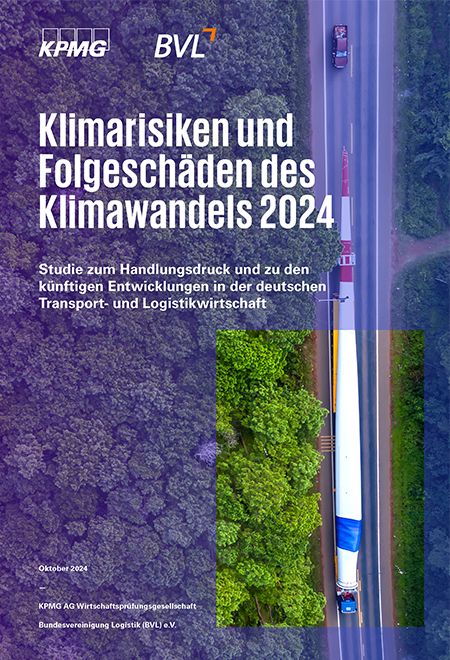The increase in extreme weather events and stricter regulatory requirements in the area of sustainability and climate present companies with new challenges. Our study analyses how the transport and logistics industry takes climate risks and the consequences of climate change into account in its risk management system and what measures are being taken to reduce its own impact on climate change.

Download the study now
Climate risks and consequential damage from climate change 2024 (in German only)
Download nowDr. Steffen Wagner
Partner, Deal Advisory, Head of Corporate Finance, Head of Transport & Infrastructure
KPMG AG Wirtschaftsprüfungsgesellschaft
Companies mainly register regulatory changes
A key finding of the study shows that 75 per cent of the companies surveyed are aware of climate risks and consequential damage from climate change in the context of increased regulatory implications and ESG requirements. Nevertheless, the majority do not fully take these risks into account in their risk management systems. This indicates that there is still a considerable need for action in order to fully integrate the risks.
Climate risk management as a competitive advantage
It is noteworthy that many companies actively manage climate-related opportunities and risks and view climate risk management as a competitive advantage. A significant proportion of companies see themselves as thought leaders in the area of climate risks and also demand considerable efforts from their business partners. This shows that there is a strong awareness of the importance of climate risk management in the industry.
Companies recognise the importance of climate risks in sustainability investments
The study also highlights a dilemma for companies: According to their perception, there is little willingness to pay more for CO₂-neutral transport or to accept longer delivery times. This poses a considerable challenge, as the implementation of climate targets is often associated with additional costs and adjustments. Nevertheless, many companies recognise the importance of climate risks in sustainability investments and are focusing on modernisation and digitalisation.
Companies recognise the importance of climate risks in sustainability investments
The study also highlights a dilemma for companies: According to their perception, there is little willingness to pay more for CO₂-neutral transport or to accept longer delivery times. This poses a considerable challenge, as the implementation of climate targets is often associated with additional costs and adjustments. Nevertheless, many companies recognise the importance of climate risks in sustainability investments and are focusing on modernisation and digitalisation.
Risks should be mapped in a risk management system
The study offers valuable insights and practical approaches to effectively manage climate risks and develop sustainable business strategies. Our joint study with the German Logistics Association (BVL) shows that the transport and logistics industry is already taking important steps to manage climate risks. However, there are still various challenges to overcome in order to fully integrate these risks into the risk management system and achieve the ambitious climate targets.



